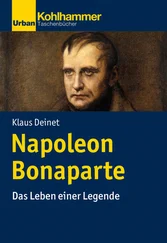Louis Bourrienne - Memoirs of Napoleon Bonaparte — Volume 12
Здесь есть возможность читать онлайн «Louis Bourrienne - Memoirs of Napoleon Bonaparte — Volume 12» — ознакомительный отрывок электронной книги совершенно бесплатно, а после прочтения отрывка купить полную версию. В некоторых случаях можно слушать аудио, скачать через торрент в формате fb2 и присутствует краткое содержание. Жанр: Биографии и Мемуары, История, foreign_edu, foreign_antique, foreign_prose, на английском языке. Описание произведения, (предисловие) а так же отзывы посетителей доступны на портале библиотеки ЛибКат.
- Название:Memoirs of Napoleon Bonaparte — Volume 12
- Автор:
- Жанр:
- Год:неизвестен
- ISBN:нет данных
- Рейтинг книги:5 / 5. Голосов: 1
-
Избранное:Добавить в избранное
- Отзывы:
-
Ваша оценка:
- 100
- 1
- 2
- 3
- 4
- 5
Memoirs of Napoleon Bonaparte — Volume 12: краткое содержание, описание и аннотация
Предлагаем к чтению аннотацию, описание, краткое содержание или предисловие (зависит от того, что написал сам автор книги «Memoirs of Napoleon Bonaparte — Volume 12»). Если вы не нашли необходимую информацию о книге — напишите в комментариях, мы постараемся отыскать её.
Memoirs of Napoleon Bonaparte — Volume 12 — читать онлайн ознакомительный отрывок
Ниже представлен текст книги, разбитый по страницам. Система сохранения места последней прочитанной страницы, позволяет с удобством читать онлайн бесплатно книгу «Memoirs of Napoleon Bonaparte — Volume 12», без необходимости каждый раз заново искать на чём Вы остановились. Поставьте закладку, и сможете в любой момент перейти на страницу, на которой закончили чтение.
Интервал:
Закладка:
—[The Allies were so numerous that they scarcely perceived the losses they sustained. Their masses pressed down upon us in every direction, and it was impossible that victory could fail to be with them. Their success, however, would have been less decisive had it not been for the defection of the Saxons. In the midst of the battle, these troops having moved towards the enemy, as if intending to make an attack, turned suddenly around, and opened a heavy fire of artillery and musketry on the columns by the aids of which they had a few moments before been fighting. I do not know to what page of history such a transaction is recorded. This event immediately produced a great difference in our affairs, which were before in a bad enough train. I ought here mention that before the battle the Emperor dismissed a Bavarian division which still remained with him. He spoke to the officers in terms which will not soon be effaced from their memory. He told them, that, "according to the laws of war, they were his prisoners, since their Government had taken part against him; but that he could not forget the services they had rendered him, and that they were therefore at liberty to return home." These troops left the army, where they were much esteemed, and marched for Bavaria.]—
He fought his way through them and received another wound. He then threw himself into the Pleisse, which was the first river he came to. Aided by his officers, he gained the opposite bank, leaving his horse in the river. Though greatly exhausted he mounted another, and gained the Elster, by passing through M. Reichenbach's garden, which was situated on the side of that river. In spite of the steepness of the banks of the Elster at that part, the Prince plunged with his horse into the river: both man and horse were drowned, and the same fate was shared by several officers who followed Poniatawski's example. Marshal Macdonald was, luckily, one of those who escaped. Five days after a fisherman drew the body of the Prince, out of the water. On the 26th of October it was temporarily interred at Leipsic, with all the honours due to the illustrious deceased. A modest stone marks the spot where the body of the Prince was dragged from the river. The Poles expressed a wish to. erect a monument to the memory of their countryman in the garden of M. Reichenbach, but that gentleman declared he would do it at his own expense, which he did. The monument consists of a beautiful sarcophagus, surrounded by weeping willows. The body of the Prince, after bring embalmed, was sent in the following year to Warsaw, and in 1816 it was deposited in the cathedral, among the remains of the Kings and great men of Poland. The celebrated Thorwaldsen was commissioned to execute a monument for his tomb. Prince Poniatowski left no issue but a natural son, born in 1790. The royal race, therefore existed only in a collateral branch of King Stanislas, namely, Prince Stanislas, born in 1754.
CHAPTER XXX
1813
Amount of the Allied forces against Napoleon—Their advance towards the Rhine—Levy of 280,000 men—Dreadful situation of the French at Mayence—Declaration of the Allies at Frankfort—Diplomatic correspondents—The Due de Bassano succeeded by the Duke of Vicenza —The conditions of the Allies vaguely accepted—Caulaincourt sent to the headquarters of the Allies—Manifesto of the Allied powers to the French people.—Gift of 30,000,000 from the Emperor's privy purse—Wish to recall M. de Talleyrand—Singular advice relative to Wellington—The French army recalled from Spain—The throne resigned Joseph—Absurd accusation against M. Laine—Adjournment of the Legislative Body—Napoleon's Speech to the Legislative Body—Remarks of Napoleon reported by Cambaceres.
When the war resumed its course after the disaster of Leipsic I am certain that the Allied sovereigns determined to treat with Napoleon only in his own capital, as he, four years before, had refused to treat with the Emperor of Austria except at Vienna. The latter sovereign now completely raised the mask, and declared to the Emperor that he would make common cause with Russia and Prussia against him. In his declaration he made rise of the singular pretext, that the more enemies there were against Napoleon there would be the greater chance of speedily obliging him to accede to conditions which would at length restore the tranquillity of which Europe stood so much in need. This declaration on the part of Austria was an affair of no little importance, for she had now raised an army of 260,000 men. An equal force was enrolled beneath the Russian banners, which were advancing towards the Rhine. Prussia had 200,000 men; the Confederation of the Rhine 150,000: in short, including the Swedes and the Dutch, the English troops in Spain and in the Netherlands, the Danes, who had abandoned us, the Spaniards and Portuguese, whose courage and hopes were revived by our reverses, Napoleon had arrayed against him upwards of a million of armed men. Among them, too, were the Neapolitans, with Murat at their head!
The month of November 1813 was fatal to the fortune of Napoleon. In all parts the French armies were repulsed and driven back upon the Rhine, while-in every direction, the Allied forces advanced towards that river. For a considerable time I had confidently anticipated the fall of the Empire; not because the foreign sovereigns had vowed its destruction, but because I saw the impossibility of Napoleon defending himself against all Europe, and because I knew that, however desperate might be his fortune, nothing would induce him to consent to conditions which he considered disgraceful. At this time every day was marked by a new defection. Even the Bavarians, the natural Allies of France, they whom the Emperor had led to victory at the commencement of the second campaign of Vienna, they whom he had, as it were, adopted on the field of battle, were now against us, and were the bitterest of our enemies.
Even before the battle of Leipsic, the consequences of which were so ruinous to Napoleon, he had felt the necessity of applying to France for a supply of troops; as if France had been inexhaustible. He directed the Empress Regent to make this demand; and accordingly Maria Louisa proceeded to the Senate, for the first time, in great state: but the glories of the Empire were now on the decline. The Empress obtained a levy of 280,000 troops, but they were no sooner enrolled than they were sacrificed. The defection of the Bavarians considerably augmented the difficulties which assailed the wreck of the army that had escaped from Leipsic. The Bavarians had got before us to Hanau, a town four leagues distant from Frankfort; there they established themselves, with the view of cutting off our retreat; but French valour was roused, the little town was speedily carried, and the Bavarians were repulsed with considerable loss. The French army arrived at Mayence; if, indeed, one may give the name of army to a few masses of men destitute, dispirited, and exhausted by fatigue and privation. On the arrival of the troops at Mayence no preparation had been made for receiving them: there were no provisions, or supplies of any kind; and, as the climax of misfortune, infectious epidemics broke out amongst the men. All the accounts I received concurred in assuring me that their situation vas dreadful:
However; without counting the wreck which escaped from the disasters of Leipsic, and the ravages of disease; without including the 280,000 men which had been raised by a 'Senatus-consulte, on the application of Maria Louisa, the Emperor still possessed 120,000 good troops; but they were in the rear, scattered along the Elbe, shut up in fortresses such as Dantzic, Hamburg, Torgau, and Spandau. Such was the horror of our situation that if, on the one hand, we could not resolve to abandon them, it was at the same time impossible to aid them. In France a universal cry was raised for peace, at whatever price it could be purchased. In this state of things it may be said that the year 1813 was more fatal to Napoleon than the year 1812. The disasters of Moscow were repaired by his activity and the sacrifices of France; but the disasters of Leipsic were irreparable.
Читать дальшеИнтервал:
Закладка:
Похожие книги на «Memoirs of Napoleon Bonaparte — Volume 12»
Представляем Вашему вниманию похожие книги на «Memoirs of Napoleon Bonaparte — Volume 12» списком для выбора. Мы отобрали схожую по названию и смыслу литературу в надежде предоставить читателям больше вариантов отыскать новые, интересные, ещё непрочитанные произведения.
Обсуждение, отзывы о книге «Memoirs of Napoleon Bonaparte — Volume 12» и просто собственные мнения читателей. Оставьте ваши комментарии, напишите, что Вы думаете о произведении, его смысле или главных героях. Укажите что конкретно понравилось, а что нет, и почему Вы так считаете.












